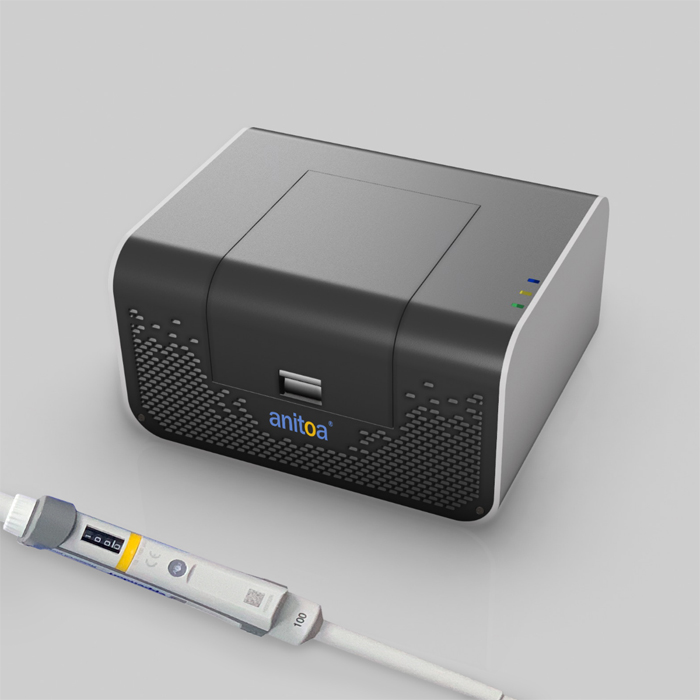Exploring the potential of portable qPCR instruments for point-of-care testing (POCT) in resource-limited or remote settings
Portable qPCR instruments are revolutionizing the field of molecular diagnostics, enabling researchers and healthcare professionals to perform accurate and sensitive tests in settings that were previously impossible or impractical. One area where these devices are particularly promising is point-of-care testing (POCT) in resource-limited or remote settings, where access to traditional laboratory facilities is limited or non-existent. In this article, we'll explore the potential of portable qPCR instruments for POCT, and discuss some of the challenges and opportunities associated with this technology.
Advantages of Portable qPCR Instruments for POCT
First, let's define what we mean by POCT. Essentially, this refers to any diagnostic test that can be performed at or near the site of patient care, rather than in a central laboratory. POCT offers several advantages over traditional laboratory testing, including faster turnaround times, reduced transportation and storage costs, and improved patient outcomes through more rapid diagnosis and treatment. However, implementing POCT in resource-limited or remote settings can be challenging, due to factors such as limited infrastructure, lack of trained personnel, and difficulty in maintaining and calibrating complex laboratory instruments.
This is where portable qPCR instruments come in. These devices are designed to be small, rugged, and easy to use, without sacrificing accuracy or sensitivity. Anitoa's qPCR instruments, for example, utilize advanced chip technology and microfluidic control to perform rapid and accurate nucleic acid amplification and detection, even in challenging samples or conditions. These instruments can be used with a variety of sample types, including blood, saliva, urine, and swabs, and can detect a wide range of targets, from viral or bacterial pathogens to genetic mutations or biomarkers.

Applications of Portable qPCR Instruments in Resource-Limited or Remote Settings
So, what are some of the potential applications of portable qPCR instruments for POCT in resource-limited or remote settings? Here are a few examples:
1. Infectious disease diagnosis: Portable qPCR instruments could be used to detect and identify infectious agents such as HIV, malaria, tuberculosis, and Ebola in field settings, enabling rapid diagnosis and treatment. This could be particularly valuable in areas with high disease burden and limited access to centralized laboratory facilities.
2. Environmental monitoring: Portable qPCR instruments could be used to detect and quantify pollutants, pathogens, or other contaminants in water, soil, or air samples. This could be valuable for environmental monitoring or disaster response efforts, where quick and accurate detection is critical.
3. Veterinary medicine: Portable qPCR instruments could be used to diagnose and monitor animal diseases, such as avian influenza or African swine fever, in remote or rural areas. This could help to prevent the spread of infectious agents and improve animal health and welfare.
4. Cancer diagnosis: Portable qPCR instruments could be used to detect genetic mutations or biomarkers associated with cancer, enabling earlier and more accurate diagnosis and treatment. This could be particularly valuable in areas where access to centralized oncology centers is limited.
Challenges and Limitations of Portable qPCR Instruments for POCT
Of course, there are some challenges and limitations associated with using portable qPCR instruments for POCT. These devices may require specialized training and maintenance, and there may be regulatory hurdles to overcome in some regions. However, with proper planning and support, portable qPCR instruments have the potential to revolutionize the way we approach molecular diagnostics and healthcare delivery in resource-limited or remote settings.
Anitoa's Commitment to Advancing Molecular Diagnostics with qPCR Instruments
In conclusion, portable qPCR instruments offer a promising new approach to point-of-care testing in resource-limited or remote settings. By enabling rapid and accurate diagnosis of a wide range of targets, these devices could have a profound impact on healthcare delivery and disease control efforts worldwide. As the technology continues to evolve and improve, we can expect to see even more innovative applications and use cases emerging in the years to come. Anitoa is committed to advancing the field of molecular diagnostics through our cutting-edge qPCR instruments and reagents, and we are excited to see the potential of these technologies in improving global health outcomes. If you are interested in learning more about our products and services, please visit our website or contact us directly. Thank you for reading!